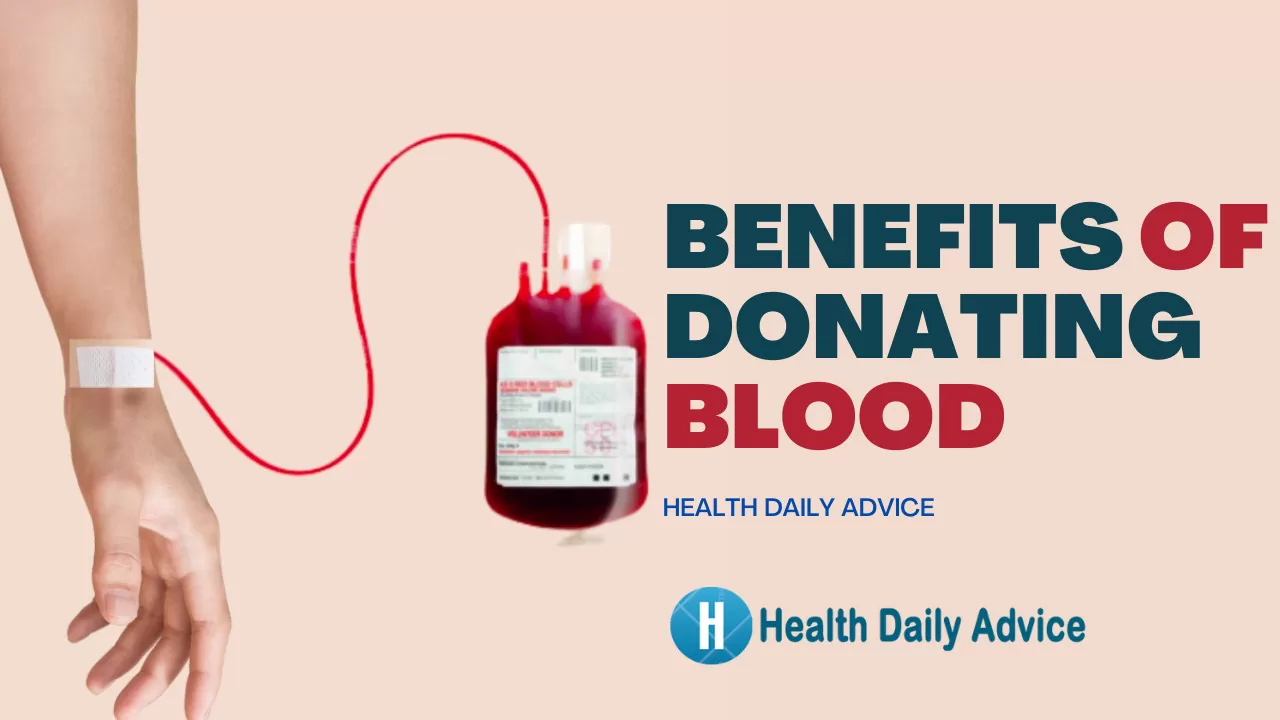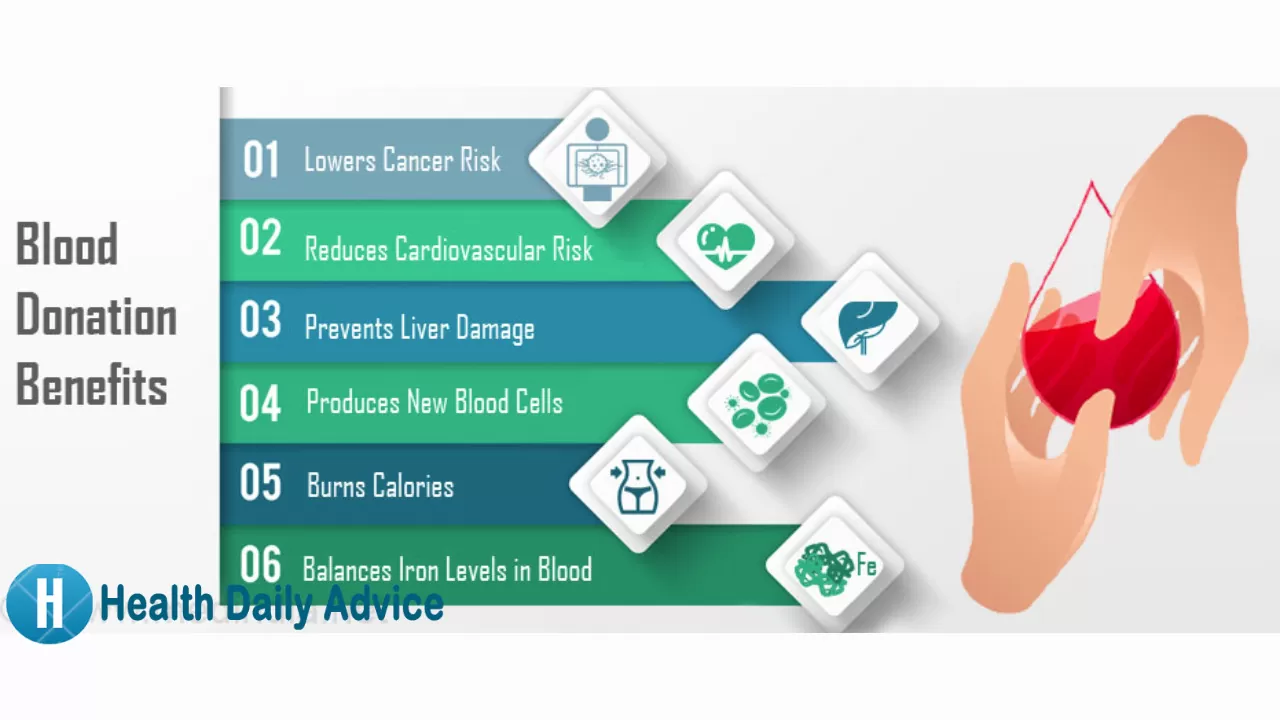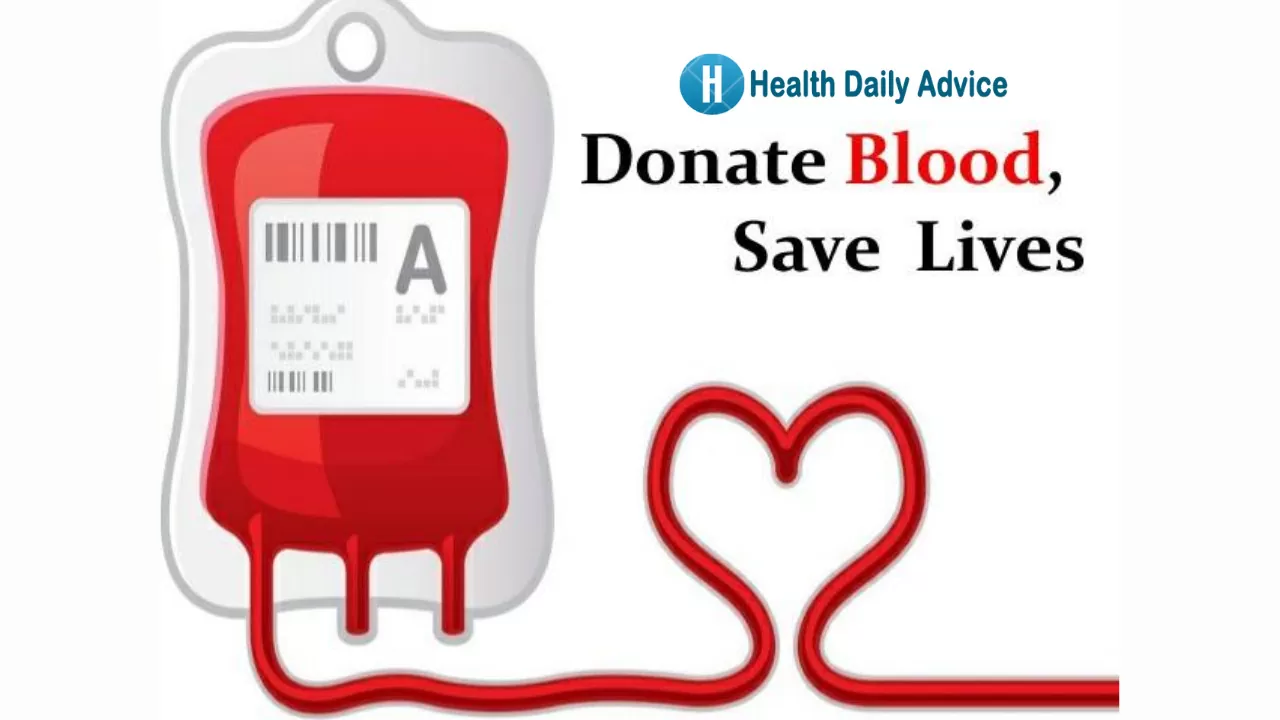Introduction
Blood donation is a simple and painless process that involves giving blood voluntarily to be used for transfusions or medical research. It is a crucial element of modern healthcare and helps save countless lives every day. Not only does it help those in need, but it also has several health benefits for the donor. In This Article, We Tell you About the Benefits of Donating Blood
What is blood donation?
Blood donation is the process of voluntarily giving blood to be used for transfusions or medical research. The collected blood is processed and tested before being used to treat patients who require blood transfusions due to surgery, illness, or injury.

Why is blood donation important?
Blood donation is critical to modern healthcare, as it helps ensure that hospitals and medical facilities have an adequate supply of blood to treat patients in need. Blood transfusions are used to save the lives of people with severe injuries, surgeries, cancer, and other illnesses that result in significant blood loss.
Who can donate blood?
Most healthy people can donate blood. However, some medical conditions, medications, and lifestyle factors may prevent you from donating. Eligibility criteria may vary depending on the location and the organization to which you are donating. Generally, donors must be at least 17 years old, weigh at least 110 pounds, and be in good health.
The benefits of donating blood
It saves lives
The most significant benefit of donating blood is that it can help save lives. One donation can potentially save up to three lives. The blood is separated into its different components, such as red blood cells, plasma, and platelets, and used to treat different medical conditions.
It reduces the risk of heart disease
Donating blood can lower the risk of heart disease, especially in men. According to a study published in the American Journal of Epidemiology, blood donors are 33% less likely to develop cardiovascular disease than non-donors. The study suggests that regular blood donation can help lower the levels of iron in the blood, which can reduce the risk of heart disease.
It helps replenish the body’s blood supply
Blood donation can help replenish the body’s blood supply. When you donate blood, your body immediately starts to replenish the lost blood. This process stimulates the production of new blood cells, which can help improve your overall health.
It promotes the production of new blood cells
Blood donation can stimulate the production of new blood cells, which can help improve your health. When you donate blood, your body replaces the lost blood by producing new blood cells, including red blood cells, white blood cells, and platelets. This process can help improve your immune system and reduce the risk of developing diseases.
It can improve your mental health
Donating blood can also have a positive impact on your mental health. Studies have shown that regular blood donors have lower rates of depression and anxiety than non-donors. Donating blood can give you a sense of purpose and satisfaction, knowing that you are making a difference in someone else’s life. It can also help reduce stress levels by releasing endorphins, which can improve your mood and promote relaxation.
It can reduce your risk of cancer
Donating blood can also reduce your risk of cancer. According to a study published in the Journal of the National Cancer Institute, blood donors are 30% less likely to develop certain types of cancers, including liver, lung, colon, and throat cancer. The study suggests that regular blood donation can help reduce the levels of iron in the body, which can limit the growth of cancer cells.
It can give you a free health check-up
Before donating blood, you will undergo a health screening, which can provide valuable information about your health status. The screening includes checking your blood pressure, pulse, hemoglobin levels, and other vital signs. This can help detect any underlying health issues, such as high blood pressure or anemia, that you may not be aware of.

How to prepare for blood donation
To prepare for blood donation, you should:
- Eat a healthy meal before donating
- Drink plenty of fluids before and after the donation
- Avoid alcohol and caffeine before the donation
- Get a good night’s sleep before the donation
- Bring a photo ID and any required documentation
- Wear comfortable and loose clothing
- Inform the healthcare provider about any medications or medical conditions
What to expect during and after blood donation
During blood donation, a healthcare provider will insert a sterile needle into your arm and collect the blood. The process usually takes 10-15 minutes, and you may feel a slight pinch or sting. After donation, you should rest for a few minutes and drink plenty of fluids to replenish the lost fluids. You should avoid strenuous physical activity for at least 24 hours after donation.
Conclusion
In conclusion, donating blood is a selfless act that can save lives and improve your health. It has numerous benefits, including reducing the risk of heart disease and cancer, promoting the production of new blood cells, and improving mental health. If you are eligible to donate blood, consider making it a regular part of your life and enjoy the benefits of giving back to the community.
FAQs
You can donate blood every 56 days.
Yes, blood donation is safe when done by a qualified healthcare provider.
You should eat a healthy meal that includes iron-rich foods, such as red meat, spinach, and beans.
Blood donation usually takes 10-15 minutes.
You may be able to donate blood if your tattoo or piercing was done by a licensed professional and meets certain criteria.
Note:
So in This Post, Benefits of Donating Blood: Save Lives and Improve Your Health What other points can you think of/have experienced? Let me know in the comments.
If you found this helpful or feel free to share your experience if you can relate to these points and if you are comfortable share
For More Articles Related to the Benefits of Donating Blood Stay Tuned To our Site: Health Daily Advice










